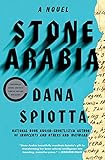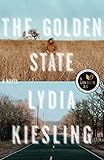I spent a lot of this year trying to write a book: lying on the floor, making spaghetti, chewing on my fingernails, staring at the wall, reading. I wanted to figure some things out, and surrounded myself with books that I thought would help. Instead of reading them, I got distracted. I read an endless number of articles and essays about politics, technology, politics and technology. I stuffed my brain with information. Wikipedia. I was thinking about Yelp culture and V.C. culture, so I read a lot of Yelp reviews, and a lot of tweets from venture capitalists and nascent venture capitalists. Medium posts. Hacker News.





After a while, this became boring, and I remembered how to read for pleasure. I read, or reread: Red Brick, Black Mountain, White Clay; Things I Don’t Want to Know; Stone Arabia; Asymmetry; Housekeeping; Fierce Attachments; The Maples Stories; Twilight of the Superheroes; Talk Stories; To the Lighthouse; Mating; Imperial San Francisco; The Book of Daniel; White Noise; The Fire Next Time; Close to the Machine. Essays from Happiness, and The Essential Ellen Willis, and The White Album, and Discontent and Its Civilizations, and The Earth Dies Streaming. This Boy’s Life and Stop-Time. I meant to reread Leaving the Atocha Station, but it fell into the bathtub; fine. 10:04. A stack of books about Silicon Valley history, many of which I did not finish; a lot of them told the same stories.







I read a 1971 edition of the Whole Earth Catalog, and the free e-book preview of The Devil Wears Prada, and some, but not all, of The Odyssey, the Emily Wilson translation. I got stoned before bed and read What Was the Hipster?––? I read Eileen and The Recovering and And Now We Have Everything and The Golden State and Chemistry and The Boatbuilder and Normal People and Breaking and Entering and Notes of a Native Son and Bright Lights, Big City and Heartburn and That Kind of Mother and How Fiction Works and Motherhood and Early Work and My Duck Is Your Duck and The Cost of Living and Who Is Rich? and The Mars Room. Some more pleasurable than others but all, or most, satisfying in their own ways.
I read the Amazon reviews for popular memoirs and regretted doing that. I did not read much poetry, and I regret that, too.
A few weeks ago, I read What We Should Have Known: Two Discussions, and No Regrets: Three Discussions. Five discussions! Not enough. I was very grateful for No Regrets, which felt both incomplete and expansive. Reading it was clarifying across multiple axes.
I wish I’d read more this year, or read with more direction, or at the very least kept track. I wish I’d read fewer books published within my lifetime. I wish I’d had more conversations. Staring at the wall is a solitary pursuit. I didn’t really figure out what I hoped to understand, namely: time. Time? I asked everyone. Time??? (Structure? Ha-ha.) Whatever. It’s fine. Not everything has to be a puzzle, and not everything has a solution. Time did pass.
More from A Year in Reading 2018
Don’t miss: A Year in Reading 2017, 2016, 2015, 2014, 2013, 2012, 2011, 2010, 2009, 2008, 2007, 2006, 2005
The post A Year in Reading: Anna Wiener appeared first on The Millions.
from The Millions https://ift.tt/2GtBmpW
Comments
Post a Comment